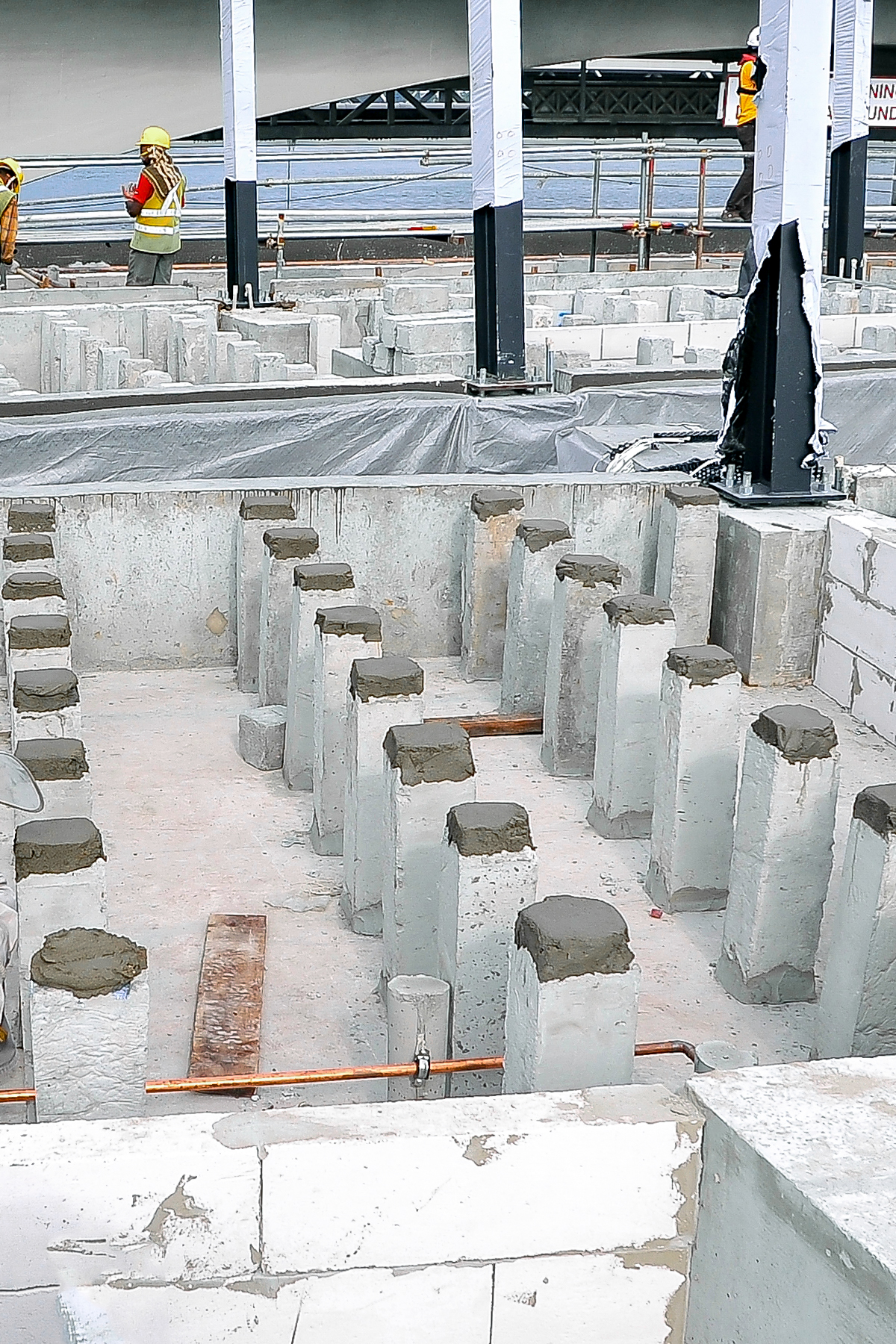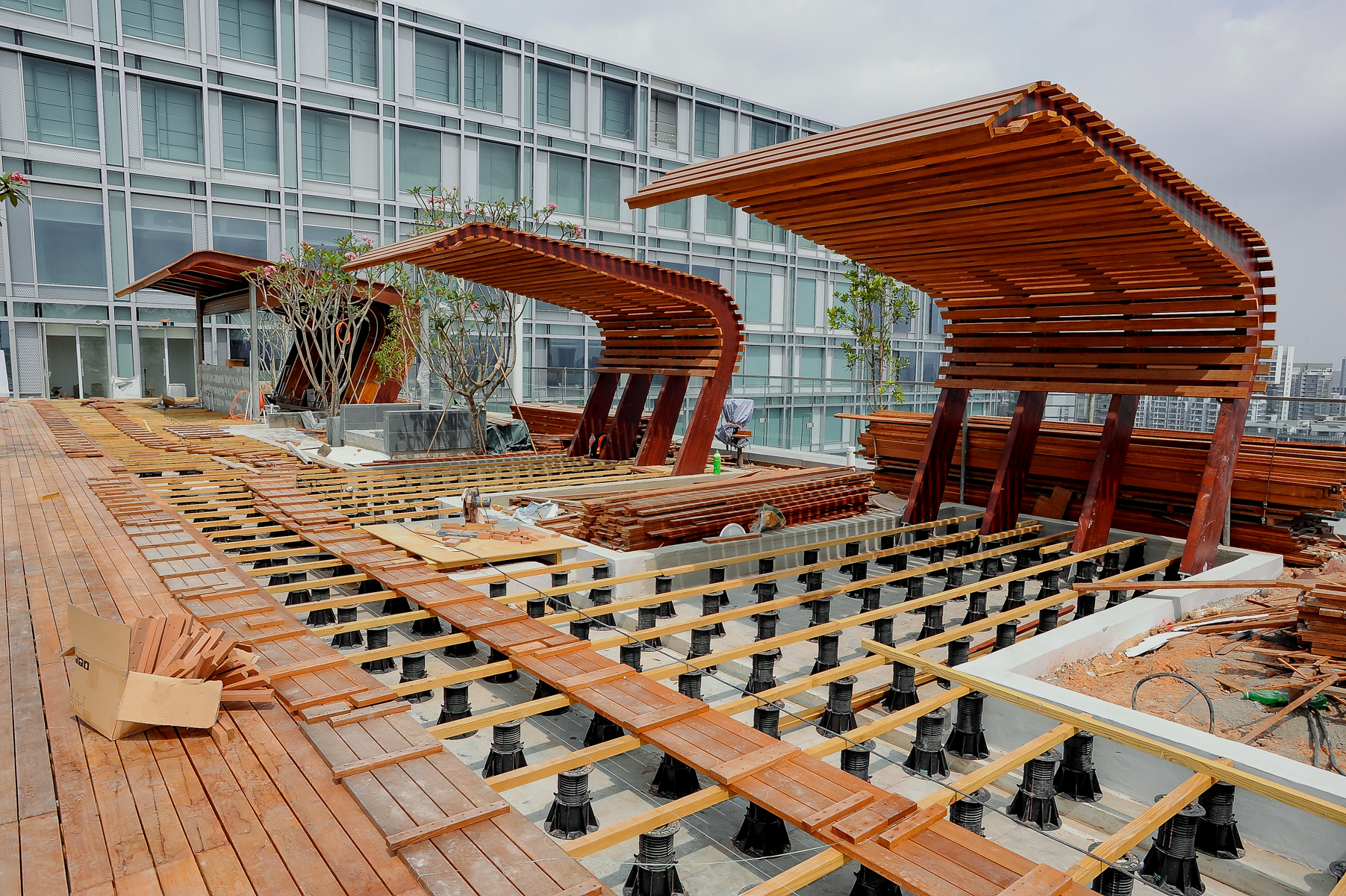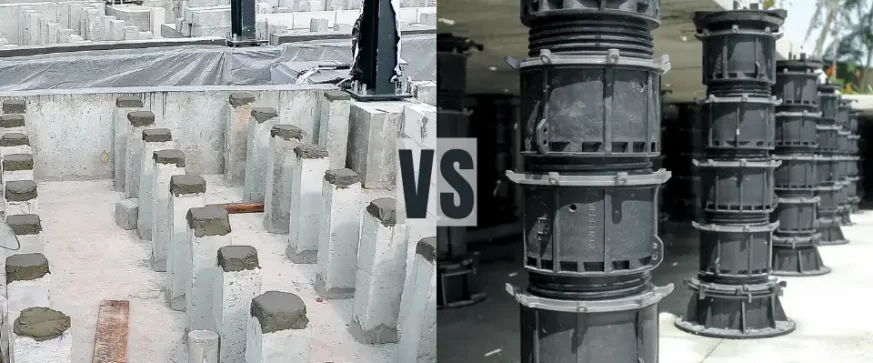When it comes to creating a solid foundation for decks and raised floors, it pays to get things right the first time. That being said, challenges are aplenty for architects and builders alike, especially when it comes to choosing the ideal type of pedestal for the job.
Decking Challenges
There is much to consider when selecting the right pedestal system for a project. Different height requirements, the level of inclination of the site, and uneven ground are some of the common challenges that architects and builders face when on a raised floor or decking project. Much of these problems originate when pedestals of unsuitable materials are used, deeply impacting the longevity and success of the end product. Choosing the wrong pedestals can be catastrophic, with problems ranging from waterproofing failures to major structural failures down the line.
Concrete Problems
Materials used for pedestals vary, common types being precasted concrete stumps and lightweight plastic pedestals. While all types of pedestals serve the same purpose, their long-term effectiveness varies, particularly when it comes to post-installation maintenance. Concrete stumps, in particular, are susceptible to a host of problems that extend beyond the due date of the project itself. What may seem to be an easy and cost-effective way to support raised paver or decking platforms may cause more problems than it solves. On the surface, concrete stumps is an easy and quick solution that fulfils the basic requirements of a raised paver or decking project. Besides offering high compressive strength, concrete stumps are non-combustible and do not decay or rot easily. The low cost of fabricating these stumps also makes them more attractive to builders. If done well, concrete stumps can be an effective solution that can last a lifetime.
However, it is important to highlight that concrete stumps also offer a host of problems, both during and after installation. The weight of concrete stumps adds to the structural load on the ground, and the sheer weight of individual stumps will make placement or altering support positions problematic, as well as potentially damaging pre-existing waterproofing materials at the installation site. The logistics alone for moving a large number of pre-cast concrete stumps from one site to another can be a labour-intensive nightmare for those involved.
Using concrete stumps for paver and decking construction is also unproductive. The requirement of form-work, mixing, and curing of the concrete are time-consuming processes and will hinder the installation of other services. Once cast, concrete stumps cannot be easily modified or moved. Should there be any height or position alteration required, reworking will lead to a huge wastage of time, possibly delaying the project schedule. Concrete is also susceptible to a phenomenon known as concrete cancer, where the steel reinforcements within the stump rust and expand, displacing the concrete around it, causing it to become brittle and crack over time. This would ultimately compromise the structural integrity of the structure.
The solution to these issues? Lightweight Plastic Pedestals.

The Definitive Solution
√ Environmentally friendly & supports green building certification
√ High compressive strength
√ Unparalleled versatility
Lightweight plastic pedestals are the definitive solution to supporting raised paver and decking platforms, designed to make installation and maintenance a breeze for all parties involved.
When it comes to building foundations, it’s better to subscribe to the mantra:
“Do it once, Do it right.”
Elmich pedestals are designed to do just that.
Sustainable Building with the Right Support

Strong and light
Each Elmich pedestal weighs in at only a fraction of a concrete stump, yet retains the same compressive strength of over 15 kN that is needed to create a strong, safe and stable foundation.
Unparalleled versatility
Elmich pedestals provide immense versatility in design and installation with its convenient progressive height adjustments, ranging from 12 mm to over 1000 mm. The pedestals are also equipped with top and bottom slope correctors that can be easily adjusted up to 5%, compensating for slight unevenness, irregularities, or sloping gradients.
Safeguard for the future
Elmich pedestals are manufactured from fully recyclable materials which meet European Union RoHS requirements thus more environmentally friendly than concrete.
Protection from the elements
Elmich pedestals are manufactured from materials that are not affected by chlorine, mould, or algae. They are also resistant to alkali and bitumen, allowing them to be safely used in a variety of site conditions. A fire resistant variant, tested in accordance to EN 13501-1 is also available.
A pedestal for every situation
Regardless of project requirements, there is always a pedestal that fits your needs.
Elmich pedestals – VersiJack®, SpiraPave®, and VersiPave®, each provide a unique solution for any project’s needs. Compatibility with Elmich’s proprietary accessories such as spacer tabs and bearers give builders more design options helping them to achieve the desired look of the project.
Other Articles You Might Like:
Adjustable Pedestal Support Pool Deck Installation | Singapore




